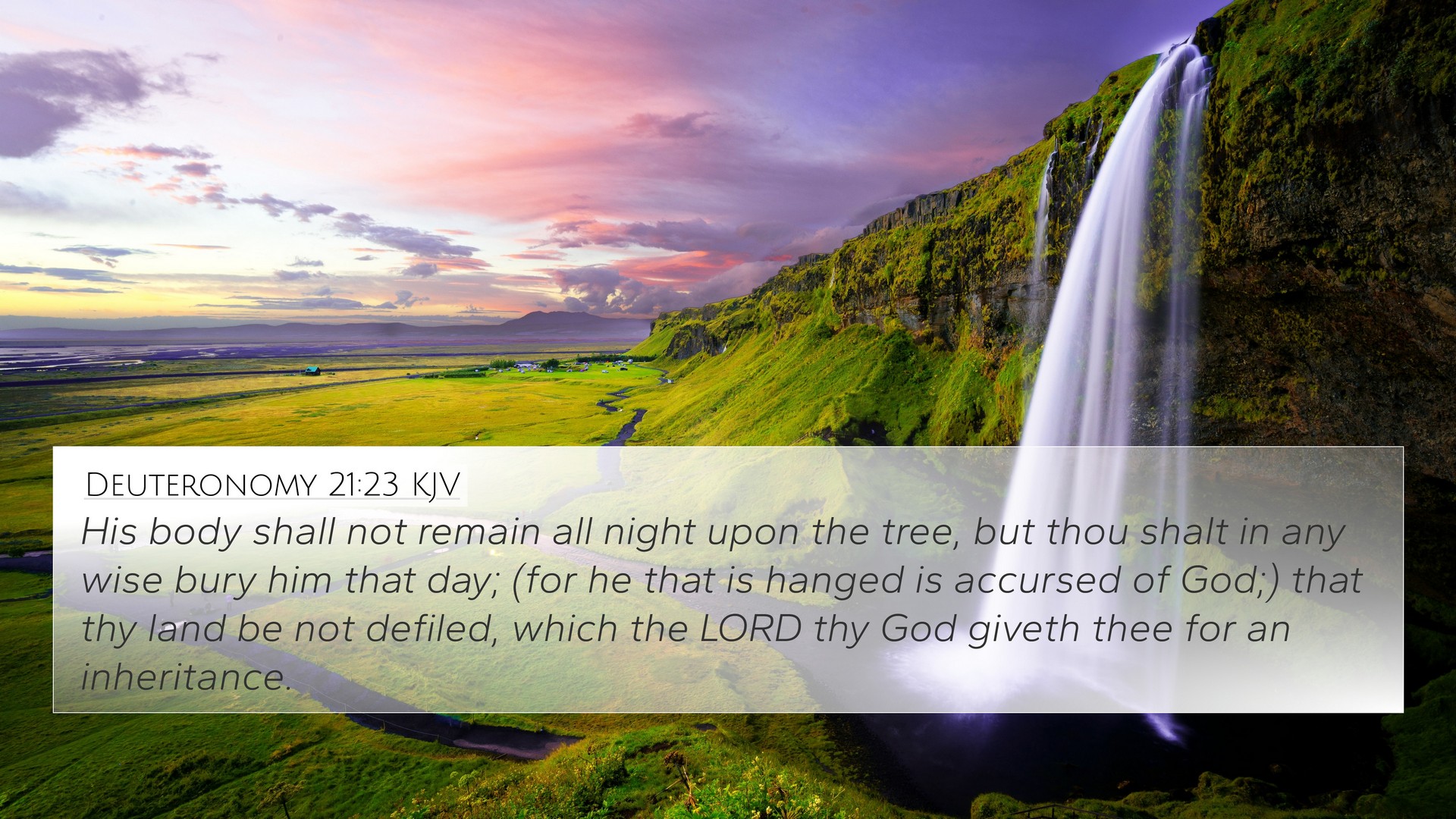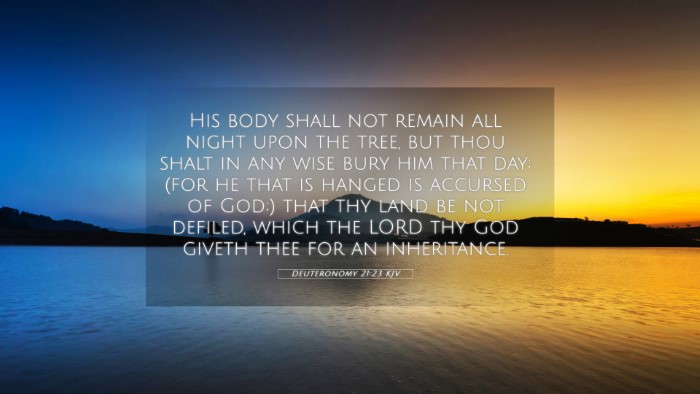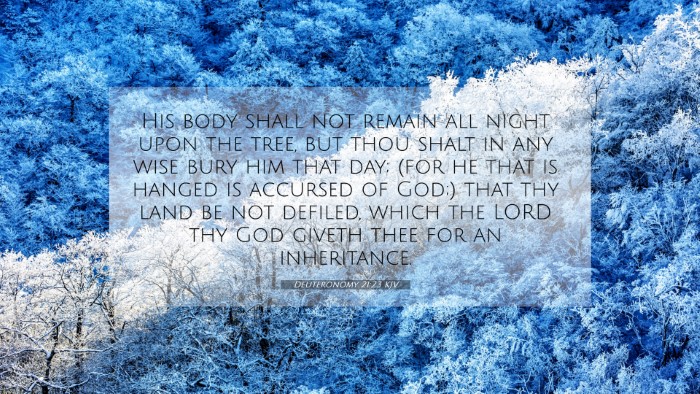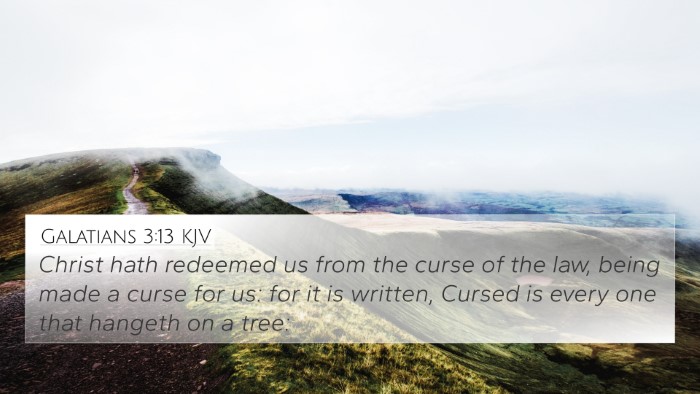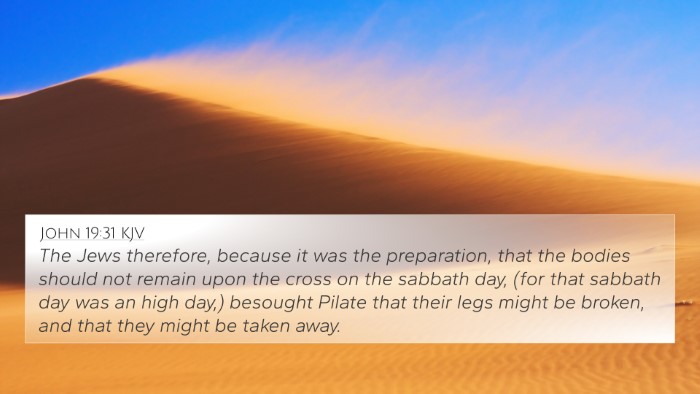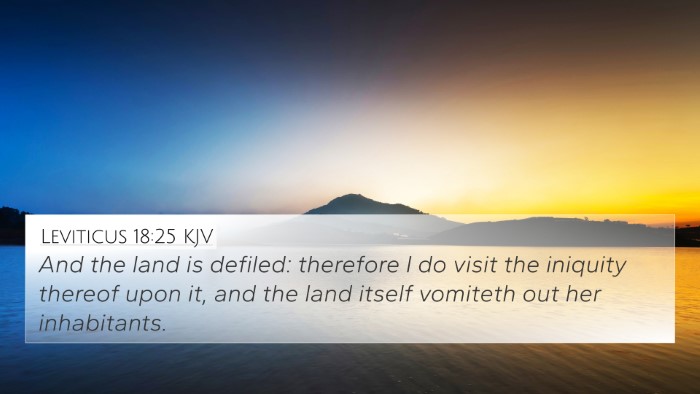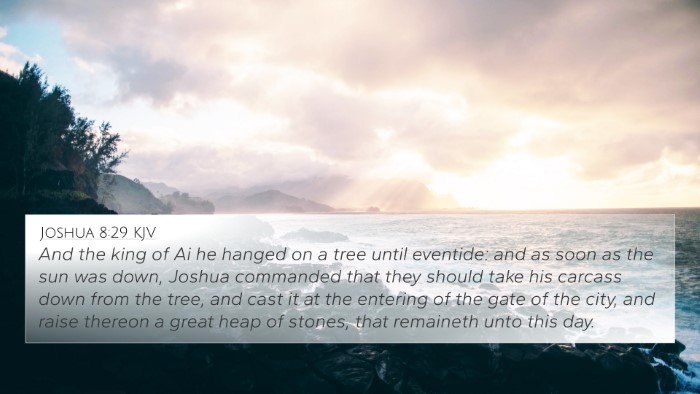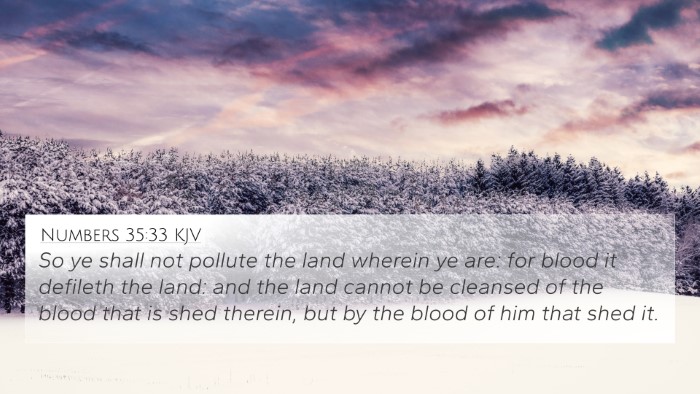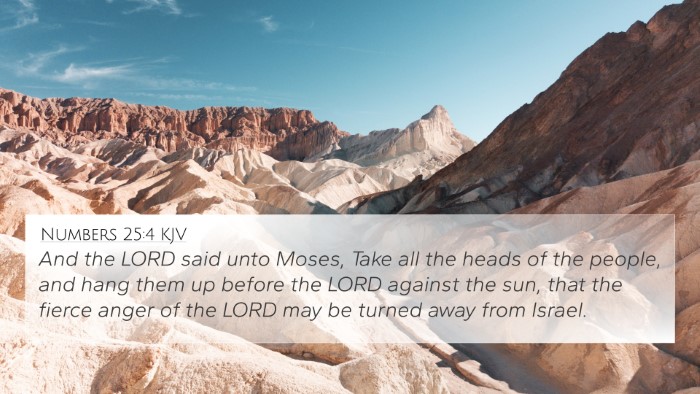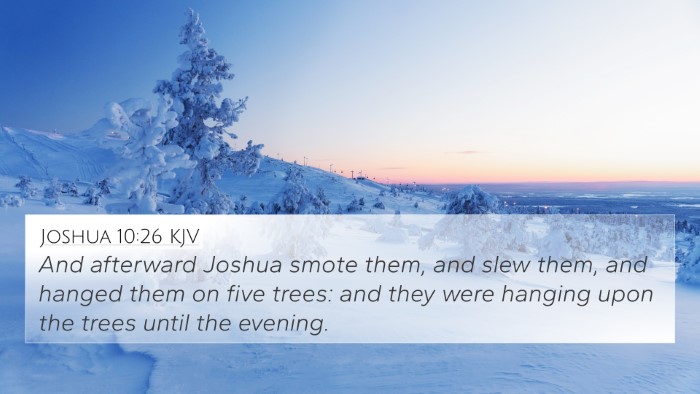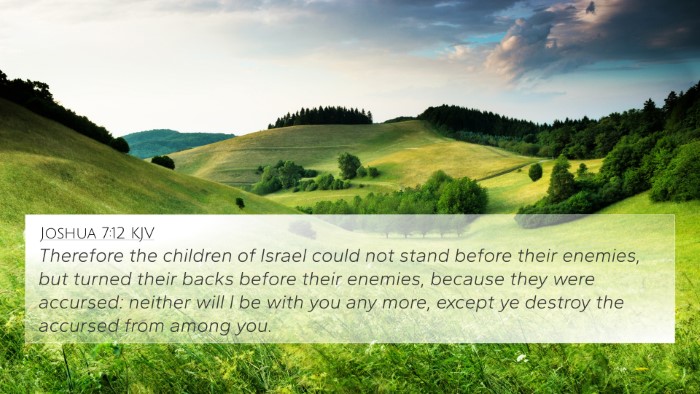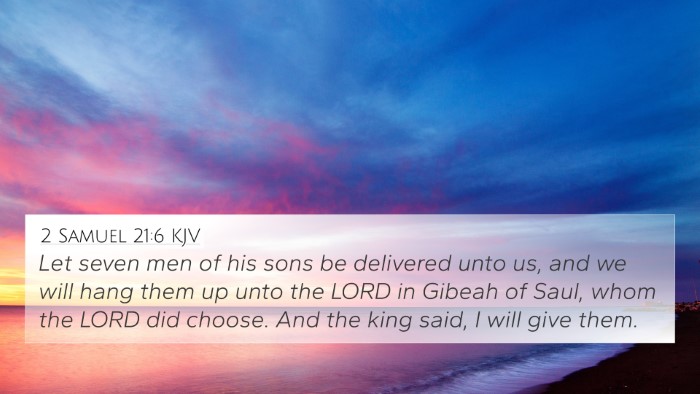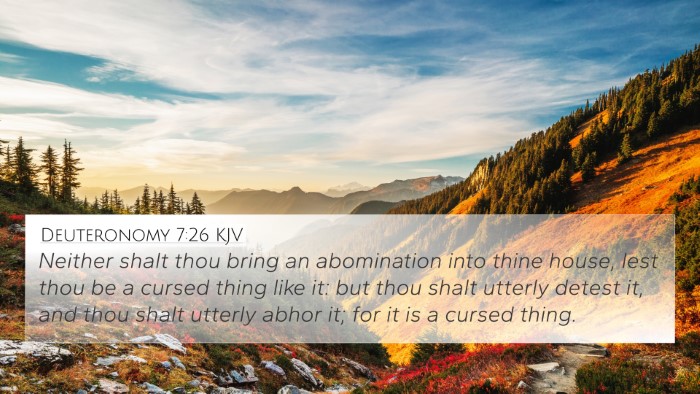Understanding Deuteronomy 21:23
Deuteronomy 21:23 states: "His body shall not remain all night upon the tree, but thou shalt in any wise bury him that day; (for he that is hanged is accursed of God;) that thy land be not defiled, which the LORD thy God giveth thee for an inheritance."
This verse is a part of the legal code given to the Israelites, addressing the treatment of criminals and the importance of maintaining the sanctity of the land.
Key Themes and Insights
-
Divine Justice: The verse highlights God's standards of justice in how criminals should be treated. Matthew Henry notes the need to swiftly remove the dead body as a reminder of the seriousness of sin and its consequences.
-
Symbolism of Hanging: Albert Barnes points out that the act of hanging is not just a punishment but also symbolizes being under a curse. This is profound, reflecting how sin separates from God's blessings.
-
Land Purity: Adam Clarke provides insight into the concept of land defilement. The burial of the executed is crucial not just for adherence to law, but for the spiritual health of the community.
Cross-References
Deuteronomy 21:23 has several related passages that further illuminate its meaning. Here are a few:
- Galatians 3:13: Highlights that Christ became a curse for us, linking to the idea of being hanged on a tree, enhancing the understanding of punishment and redemption.
- Joshua 8:29: Discusses the hanging of the king of Ai, further connecting the concept of punishment and the significance of burial.
- 2 Samuel 21:12: David's treatment of the bodies of the sons of Saul shows adherence to the principle of not allowing the bodies to defile the land.
- John 19:31: Refers to the bodies of Jesus’ crucifixion not remaining on the cross during the Sabbath, showing the continued relevance of this Old Testament law.
- Deuteronomy 27:26: Curses are associated with not obeying the commandments, echoing the theme of being accursed for sin.
- Exodus 22:31: Addresses the need for cleanliness and righteousness in the people of Israel, reflecting a similar ethical standpoint.
- Matthew 27:5: Judas's act of hanging himself is a grim parallel to the consequences of betrayal and sin.
Thematic Connections
There are significant thematic connections between Deuteronomy 21:23 and other scriptural passages, establishing a dialogue across the Bible.
- Curse and Redemption: The link between the curse of sin and the promise of redemption can be explored deeply through various scriptures, particularly in the Pauline epistles.
- Death and Burial: The themes of death leading to burial are prevalent in scriptural narratives, symbolizing the transition from judgment to grace.
- Holiness of the Land: The scriptures emphasize the sanctity of the land in which God’s people dwell, directly correlating with the importance of honoring His commandments.
Scriptural Analysis
A comparative Bible verse analysis of Deuteronomy 21:23 demonstrates its critical role in understanding the broader biblical narrative regarding sin, justice, and God's redemptive plan.
-
Inter-Biblical Dialogue: Exploring how Old Testament laws find their fulfillment in the New Testament actions of Christ provides depth to the understanding of Deuteronomy 21:23.
-
Thematic Bible Verse Connections: This verse provides insights into themes of justice, mercy, and the moral responsibilities of a community towards the divine laws set forth.
-
Cross-Referencing Bible Study: The examination of related scriptures aids in creating a comprehensive understanding of righteousness and consequence in the biblical context.
Practical Application
The principles found in Deuteronomy 21:23 lead to reflection on how modern believers understand justice, punishment, and community responsibilities.
- How do we view the balance of justice in our communities today?
- What does it mean to remain pure and account for our actions within our local contexts?
- The importance of remembering the spiritual implications of our actions and their impact on our community’s wellbeing.
Conclusion
In conclusion, Deuteronomy 21:23 serves as a crucial reminder of the seriousness of sin and the importance of maintaining holiness within the land. Through cross-referencing and thematic analysis, believers can deepen their understanding of God's justice and grace, linking ancient laws to contemporary faith practice.
